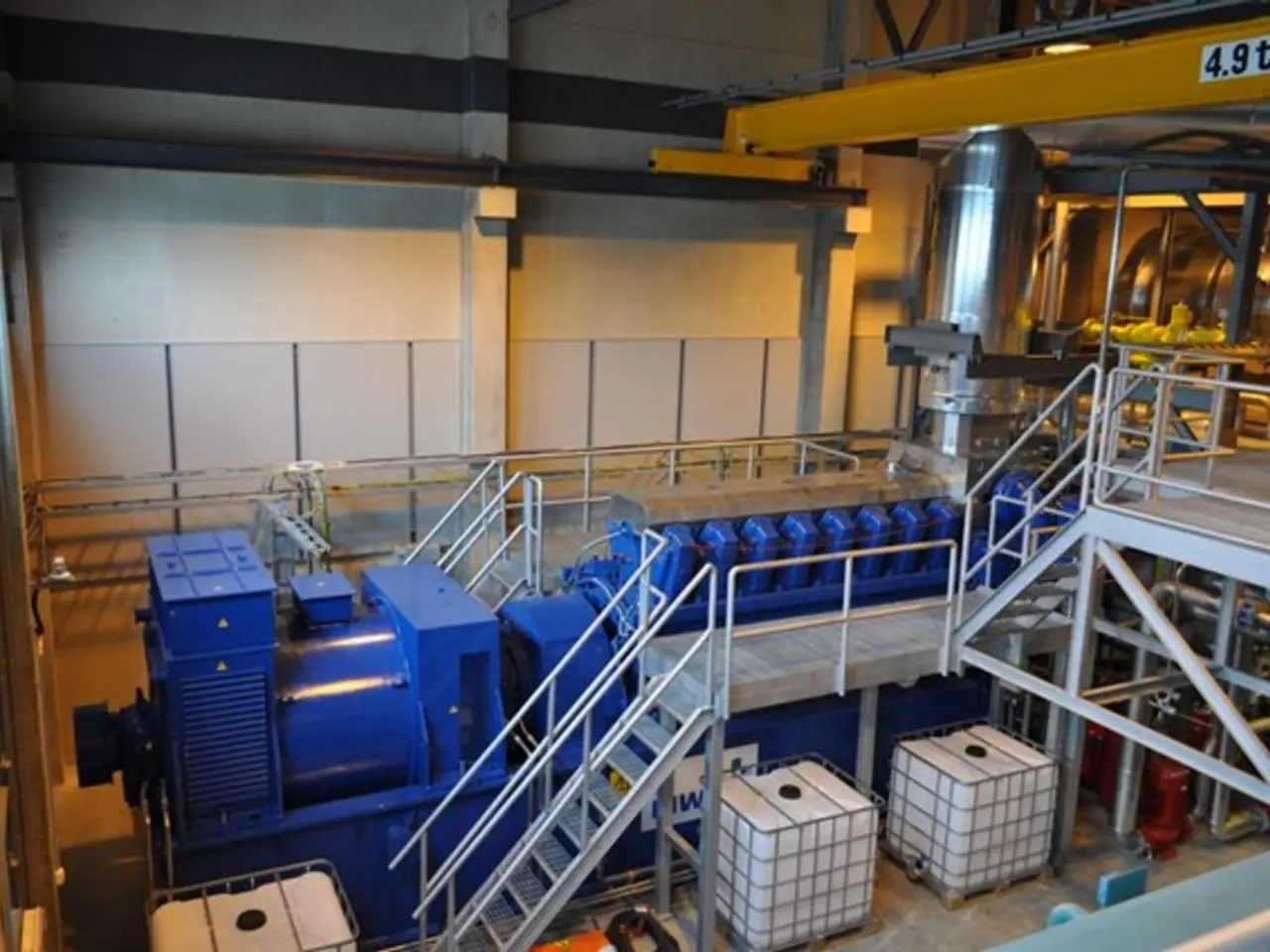Work on construction sites, following Boxo's journey in Australia.
Slingshot Your Career: The Freakin' Lowdown on Construction Gigs in Australia
Construction work is a gold mine brimming with opportunities, both for experienced and greenhorn workers. With the Australian construction industry booming for at least the next three decades, it's the perfect time to dive in! So buckle up, grab your hard hat, and let's delve into the nitty-gritty of working in the Aussie construction game.
1. Construction Career Kickstarter: Securing Australian Construction Jobs
To get things rolling on a construction site in Australia, you need one key tool - the "White Card." This baby is a certificate you grab after completing a safety course on construction sites. The course usually costs around $140 and takes about 5 hours. Once you've got that in your pocket, you're all set!
Once you've got the White Card, apply for your first construction gigs. In some regions, construction jobs contribute towards the 88 days needed for the second Working Holiday visa. To confirm if your area matches the criteria, simply check the government homepage (https://immi.homeaffairs.gov.au/visas/getting-a-visa/visa-listing/work-holiday-417/specified-work). There's a whole list of postcodes for "rural Australia." Once you've collected your payslips, upload them online to secure your second Working Holiday visa.
2. Up, Up, and Away: Pros and Cons of Construction Work in Australia
The benefits of construction work are manifold. For one, you learn a complete trade; building skills that will make you the go-to guy (or gal) on the job site. Apart from that, you'll be conversing daily with Aussies and immersing yourself in the land down under's unique lingo.
However, construction work isn't without its challenges, especially the harsh Australian climate. With soaring summer temperatures, you'll be drenched in sweat and baked by the Aussie sun, working on steel-capped boots. And don't forget the language barrier - it may be a hurdle initially, but by the end of your first week, you'll be singing "Waltzing Matilda" like a pro!
3. Watch Your Backpackers' Back: Safety Standards on Australian Construction Sites
Safety's paramount on Aussie construction sites. In your White Card course, you'll learn the ins and outs of every construction site, from danger zones to safety and warning signs. There'll also be a supervisor to guide you and ensure your safety throughout your construction adventures.
4. Where to Find Construction Gigs: Tips for Work and Travel Holidaymakers
Finding construction work in Australia is easier than you think. Go digital and apply for jobs through top websites like Seek (https://www.seek.com.au/) and Indeed (https://au.indeed.com/?from=gnav-jobsearch--indeedmobile). You can also go old-school and knock on construction doors in person, leaving your resume behind.
5. Wages and Conditions: Construction Worker's Reward Down Under
As a backpacker, you'll likely start as a Labour Worker, earning an average of $30 per hour. The hours are generally fair, with most projects beginning at 7 am and lasting until at least 3 pm. Weekends or holidays may command higher pay.
6. Construction Construction Construction: Regions with High Demand
The demand for construction workers is sky-high in bustling cities like Sydney, Melbourne, Perth, Brisbane, and Adelaide. But don't rule out small towns just yet; they offer an appealing compromise between city and countryside life.
7. From Construction Grunt to Skilled Worker: Training Options for Backpackers
Expand your skills and impress potential employers by undertaking additional training. Consider enrolling in First Aid courses, EWP training (for operating elevated platforms), or the "Working at Heights" course. Giving it your all shows your employers that you mean business.
8. Ready, Set, Build: Preparing for Your First Day on a Construction Site
Before your first day, ensure you have the necessary workwear, including hi-vis shirts and steel-capped boots. A hat and sunscreen are also essential for protecting yourself from the Aussie sun. Don't forget to stay hydrated with plenty of water and electrolytes!
9. My Journey: From Office Rat Race to Roofing King
After a stint in the office world, I opted for a change of scenery (and climate) by giving construction work a shot. After completing my White Card and applying for every construction gig I could find, I landed a trial day with Brownlow Built, which turned into an exciting roofing career. I started at $27.50 an hour and have since earned my third pay raise, now pulling in $35 an hour. The work is challenging, but the lessons I learn and the sense of camaraderie I feel more than make up for it.
So there you have it, mate! All you need is a White Card and the will to get your boots dirty to enter the exhilarating world of Australian construction.
1. Supersize Your Resume: Elevating Skills for Construction Careers
After obtaining the White Card, consider enhancing your resume with additional qualifications. Seek career-development courses and skills-training programs, such as First Aid certifications, EWP training, or the "Working at Heights" course. Building a strong portfolio shows employers your commitment to career advancement in the construction industry.
2. Keep Learning: Education-and-Self-Development for the Workforce
The construction industry is continually evolving, demanding that workers stay current with new technologies and building techniques. Invest time in learning opportunities, whether through on-the-job training, workshops, or online resources, to stay competitive. Remember that knowledge is a vital asset on any construction site!
3. Networking: Building Connections for Career-Development
Networking with other construction professionals is an excellent way to learn about new job opportunities and industry trends. Joining social clubs, attending business events, or participating in industry talks can provide valuable insights and establish relationships that could lead to career advancement.
4. Climbing the Ladder: Steps to Career Progression in Construction
Growth within the construction industry often comes with dedication, hard work, and continuous learning. Aspiring to advance your career might involve gaining expertise in a specific trade, assuming leadership roles, or pursuing job-search strategies that target higher-level positions.







